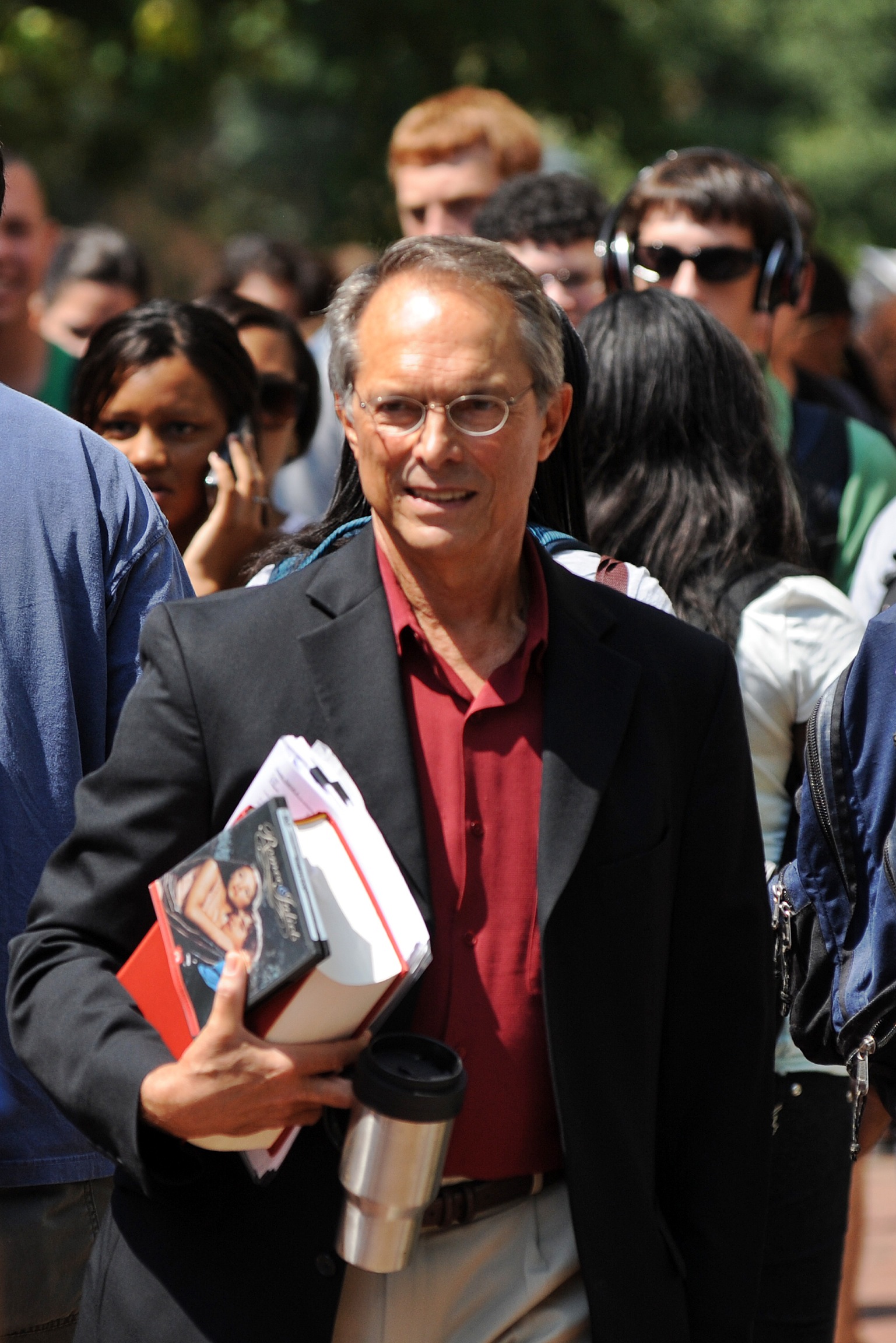 Darryl James Gless, Distinguished Professor of Renaissance Studies in the Department of English and Comparative Literature at the University of North Carolina, died on June 10, 2014. He suffered from myelofibrosis, a bone marrow failure disease, and died of multiple organ failure following an unsuccessful bone marrow transplant in late April. He was 68.
Darryl James Gless, Distinguished Professor of Renaissance Studies in the Department of English and Comparative Literature at the University of North Carolina, died on June 10, 2014. He suffered from myelofibrosis, a bone marrow failure disease, and died of multiple organ failure following an unsuccessful bone marrow transplant in late April. He was 68.
Darryl was born on December 4, 1945 in Schuyler, Nebraska, the son of the late Frank Gless and Vivian Gless who ran a clock, watch, and jewelry store in town. Having graduated from the University of Nebraska with a major in English in 1968, he won a Rhodes Scholarship to study at the University of Oxford (Lincoln College), where he joined a distinguished class including Bill Clinton, Dennis Blair, and Robert Reich. In 1975 Darryl received his doctorate from Princeton University. After six years at the University of Virginia, during which time he published Measure for Measure, the Law, and the Convent (Princeton UP, 1979), Darryl moved to the University of North Carolina at Chapel Hill, where he would spend the rest of a distinguished career that culminated with his receipt of the Roy C. Moose Distinguished Professor of Renaissance Studies in 2009. Editor of the Spenser Review (then the Spenser Newsletter) from 1987 to 1991, Darryl was also the author of Interpretation and Theology in Spenser (Cambridge UP, 1994), a learned and ambitious study that has become a classic in the field.
During his years in Chapel Hill, Darryl served UNC in a number of important administrative positions, including chair of the Department of English and Senior Associate Dean for Arts and Humanities. He helped to develop two outstanding educational programs, the First-Year Seminar Program at UNC and the Robertson Scholars program, a joint-degree program at UNC and Duke. For Darryl, such service was not just a matter of helping a great university to function but also allowed him to take a leadership role in the defense of the humanities. It was Darryl’s dedicated and far-sighted support for the humanities that prompted President Clinton to appoint him to the National Council of the National Endowment for the Humanities in 1994.
Darryl was an outstanding and beloved teacher, mentoring several decades of undergraduate and graduate students who cherished their time in his classroom. “Every bit of scholarship I ever produced would be impossible without him,” Professor Reid Barbour recollected at a recent memorial service for the former undergraduate honors thesis advisor who later became his colleague at UNC. “Without even trying, his poise and grace had a way of shaping me up, clarifying my vision and putting me back on track.” Another of Darryl’s former students, Mary Floyd-Wilson, received her Ph.D. under his direction at UNC and returned there six years later to teach alongside him. Recalling her experience as a doctoral student, Professor Floyd-Wilson described how “Darryl Gless’s capacity to elicit productive and sometimes contradictory readings from his students often felt miraculous. I would leave his classroom eager to range widely in primary sources, in criticism, and to push my thinking and interpretive skills.” Darryl’s exceptional teaching was recognized at UNC with a Tanner Award for Excellence in Teaching in 1983 and, in 2013, with the Board of Governors’ Award for Excellence in Teaching. Those who studied with him remember not just a brilliant teacher but also a kind and charitable one. Mary Floyd-Wilson remarked at his memorial service that “in my early days as an instructor, he was the professor I tried to emulate—until I realized that his power as a teacher came from qualities and gifts that I hadn’t developed: deep erudition, patience, and a magnanimous nature. But he mentored me by trusting my scholarly instincts, always more than I trusted them myself.”
With his wife Friederike Seeger, Darryl was an avid traveller, a skillful gardener, a cat lover, a life-long learner, and an excellent cook who loved to eat. To all who knew him, he was the warmest, kindest, and most generous of friends. Although he lived for the past fifteen years under the threat of a debilitating blood disorder, he was unfailingly eager to contribute everything that he could to the lives of his students, colleagues, family, and friends, and he lived every day of the last years of his life with courage and gusto. Darryl is survived by his mother, two brothers, a sister, his wife Friederike Seeger, and their daughter Elena “Leni” Gless, born on August 11, 2014, two months after Darryl’s death.
The family requests that friends consider donating blood and platelets or register as a bone marrow donor in his memory.

Comments
Literature is my life, my future field of activity, and my hobby. I liked it when I was a child, I read a lot of fairy tales. Now, I am a student at a prestigious academic institution of English Language and Literature. Professor Darryl Gless was one of the personalities I followed and who motivated me. I am not a writing expert yet and frequently I use the help from https://edubirdie.com/write-my-thesis because I am busy with my part-time journalist job and the deadlines for my academic assignments are tight. However, I try to face all the challenges to succeed in becoming an author like Mr. Gless. I write my thesis with immense support from service professionals, but this does not negate my personal love for writing and creation.
Link / ReplyYou must log in to comment.